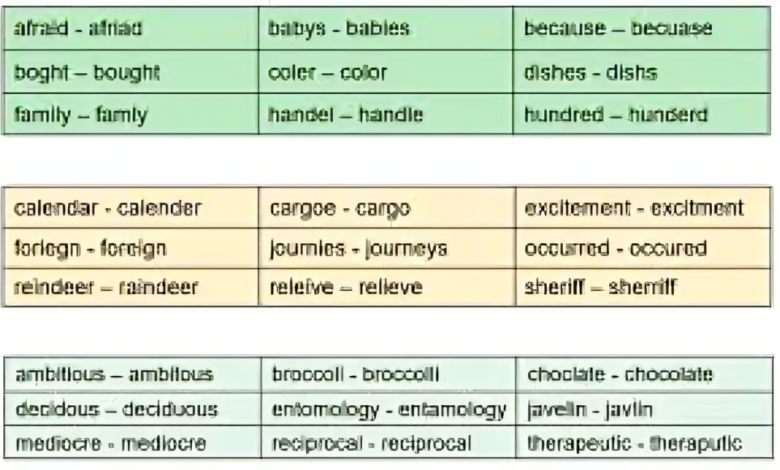Beyond the Buzz Insights into Spelling Bee Answers from Champion Competitors

Step into the fascinating world of Spelling Bee Answers, where every letter counts and the stakes soar as high as a champion’s hopes. These competitions are more than just tests of vocabulary; they embody grit, strategy, and a sprinkle of magic that can turn an ordinary kid into a national star. For many young contestants, mastering complex words is not just about winning trophies but also understanding language in its deepest form. As audiences cheer from the sidelines, little do they know about the rigorous preparation behind those captivating moments on stage. Dive with us as we uncover insights into spelling bee answers straight from top competitors—insights that reveal what it takes to conquer even the trickiest terms!
The preparation process for competitors
Preparing for a Spelling Bee Answers is no small feat. Competitors dive deep into the world of words, often starting months in advance. They create personalized study plans that outline daily goals and focus areas.
Flashcards become essential tools. Contestants use them to memorize tricky spellings and definitions. Many also turn to word lists from previous competitions as invaluable resources.
Practicing with peers or family members adds another layer of preparation. Mock spelling bees simulate real competition scenarios, helping participants gain confidence under pressure.
Reading extensively helps too. Competitors immerse themselves in literature, absorbing new vocabulary along the way. This broad approach not only sharpens their skills but also enhances their love for language itself.
Emotional readiness plays a role as well. Visualization techniques can help contestants manage anxiety on stage, ensuring they perform at their best when it counts most.
Common misconceptions about Spelling Bee Answers contestants
Many people believe that Spelling Bee Answers contestants are just prodigies with extraordinary memories. In reality, success in these competitions often stems from rigorous practice and discipline.
Another common misconception is that participants only memorize words without understanding them. Most champions delve into the etymology, pronunciation, and definitions to grasp each word’s context fully.
Some think spelling bees are merely about speed. However, taking time to analyze a word can be more beneficial than rushing through it.
Additionally, many assume that competitors fit a certain mold—young geniuses who excel academically. Yet, contestants come from diverse backgrounds and experiences; their love for language unites them far more than their academic records do.
There’s this idea that once you win a bee, you’re set for life. In truth, many champions face ongoing challenges as they navigate future competitions or pursue other interests beyond spelling.
Tips and strategies from past champions
Listening to past champions reveals invaluable insights. Many emphasize the importance of consistent practice. Regular drills help reinforce memory and improve accuracy.
Visualization techniques are also popular among winners. They picture themselves on stage, confidently spelling words under pressure. This mental exercise builds confidence and reduces anxiety.
Another common strategy is breaking down complex words into smaller parts. Champions often dissect unfamiliar terms, identifying prefixes, suffixes, and roots to make them more manageable.
Peer support plays a vital role too. Competitors often form study groups where they can share tips and quiz one another.
Additionally, embracing mistakes as learning opportunities helps in growth. Each error becomes a stepping stone toward mastery rather than a setback.
By applying these strategies with dedication, aspiring contestants can enhance their performance significantly.
Examining the most difficult words and how they were successfully spelled
Some words in Spelling Bee Answers stand out for their complexity. Take “antidisestablishmentarianism,” for example. This lengthy term often leaves competitors sweating under pressure.
Another notorious contender is “floccinaucinihilipilification.” Few dare to tackle it, yet champions break it down into manageable parts. They leverage phonetics and syllable emphasis to navigate its labyrinthine structure.
Then there’s the challenge posed by foreign terms like “Schadenfreude.” Many contestants stumble over unfamiliar pronunciations or origins but succeed through diligent study of language roots.
Champions also rely on visualization techniques. By picturing the word’s letters in their minds, they create a mental map that guides them through even the trickiest spellings.
Each difficult word tells a story of perseverance and strategy, showcasing not just linguistic skill but also an athlete’s mindset—a blend of focus and determination that drives these young competitors forward.
The mental and emotional challenges of competing in a spelling bee
Competing in a spelling bee is more than just showcasing vocabulary skills. It often brings intense mental pressures that can be overwhelming.
Imagine standing in front of an audience, your heart racing as you wait for the word to be announced. The spotlight feels hot and heavy, amplifying every doubt that creeps into your mind. Competitors face expectations from themselves and others, which can lead to anxiety.
The emotional rollercoaster doesn’t end with the competition itself. Each round eliminates contestants, making it a bittersweet experience even for those who advance. Celebrating victories while witnessing friends falter creates complex feelings.
Resilience becomes essential. Champions learn to harness their nerves as motivation rather than hindrance. Mental toughness is cultivated through practice and support systems—friends or mentors who understand the unique challenges faced in this arena.
Navigating these mental hurdles shapes not only better spellers but also stronger individuals outside of the competition realm.
Future implications for Spelling Bee Answers competitors
The future for Spelling Bee Answers competitors is filled with potential opportunities. Many past champions have leveraged their skills into successful careers in writing, linguistics, or education. Their unique expertise often makes them sought-after speakers and mentors.
As interest in spelling bees continues to grow, so too does the chance for these individuals to influence educational systems. They can inspire younger generations about the importance of language and literacy.
Additionally, technology plays a significant role. Digital platforms are expanding access to resources like online competitions and training tools. This shift empowers even more students to participate from diverse backgrounds.
In this evolving landscape, those who excelled in spelling bees may find themselves at the forefront of new initiatives promoting language arts education globally. As advocates for literacy programs, they can help shape how future learners engage with words.
FAQs
What are Spelling Bee Answers answers?
Spelling Bee Answers answers refer to the correct spellings provided by contestants during competitions. These words can range from simple to incredibly complex.
How do competitors prepare for events?
Preparation involves extensive practice with word lists, phonetics, and etymology. Many champions spend hours each day memorizing challenging terms.
Are there age limits for participants?
Typically, Spelling Bee Answers have age restrictions. Most competitors are between 8 and 14 years old, but this can vary based on the specific competition.
What makes a word difficult in a Spelling Bee Answers?
Difficult words often include unusual letter combinations, uncommon origins, or unique pronunciations that challenge even seasoned spellers.
Do past champions face pressure when competing again?
Yes. Previous winners often deal with high expectations from themselves and others. The mental strain can be significant as they aim to defend their titles or improve their rankings.
Can anyone participate in a Spelling Bee Answers?
While many competitions welcome all skill levels, some events require prior qualifications through local contests or school tournaments.
Conclusion
The world of Spelling Bee Answers is rich with dedication, strategy, and incredible talent. As we delve into the various aspects, it becomes clear that these competitions are more than just tests of memory; they are arenas where mental grit and emotional resilience play crucial roles.
From their intense preparation processes to overcoming common misconceptions, competitors showcase a unique blend of skills. The tips shared by champions reveal insights that can benefit anyone interested in mastering language or even general learning techniques.
Examining challenging words provides a glimpse into the complexity contestants face. Each word carries its own story and challenges, which can serve as valuable lessons not only for future participants but also for those looking to enhance their vocabulary or tackle difficult subjects in life.
As competitors navigate through mental hurdles and emotional highs during events, they emerge not just as winners or participants but as individuals who have grown from the experience. Their journeys hold implications far beyond the stage—offering perspective on perseverance applicable across several domains.
For enthusiasts curious about Spelling Bee Answers answers and eager to learn more about this fascinating world, there’s always something new on the horizon. Embracing the spirit of competition while fostering a love for language ensures that whether you’re cheering from home or taking your shot at glory on stage, every step is worth celebrating.



